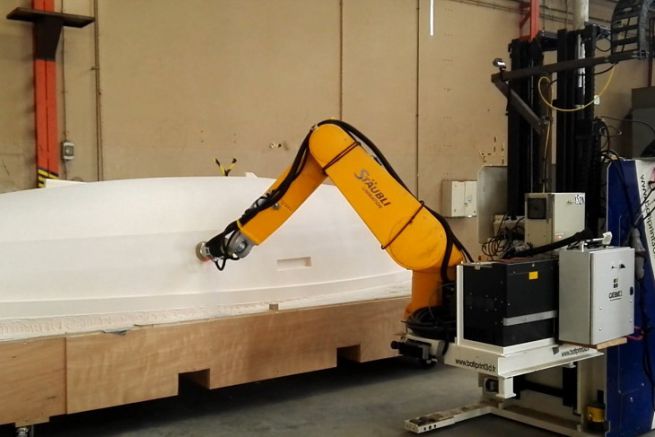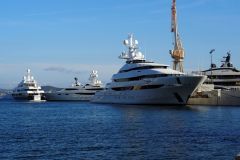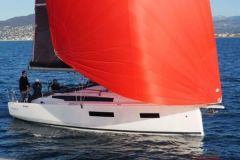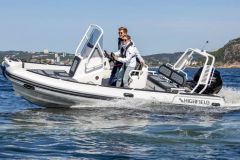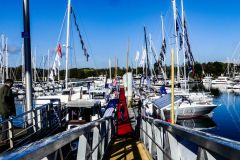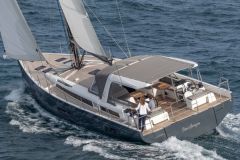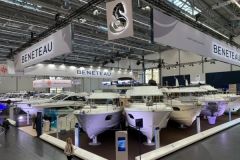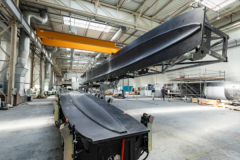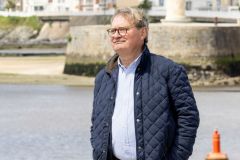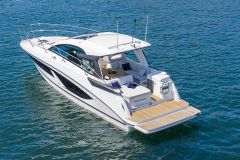Coroma: A European program to automate the industry
The Coroma project, COgnitively enhanced RObot for flexible MAnufacturing of metal and composite parts, is a European research and development programme aimed at exploring the possibilities of using intelligent robots in the manufacture of industrial parts made of metal or composites. It brings together 15 actors, industrial users, equipment manufacturers and research institutes from the various countries of the European Union, in order to carry out demonstrators in the fields of energy, aeronautics and water sports. Among them, the University of Nantes and the Bénéteau group have been involved in applications for yachting, with the aim of using a sanding and polishing robot for large composite parts, such as hulls or hull moulds. Begun in 2016, the program is coming to an end and a demonstrator is installed in Nantes.
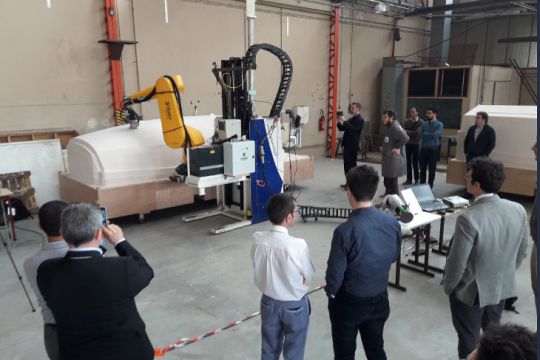
A robot for sanding boat hulls
The solution developed for the Bénéteau group uses an AGV. It is an autonomous robot that can move around the composite part it processes. Self-guided, it positions itself in relation to its environment and carries out the required sanding or polishing operation. " It was an issue that interested us " explains Benoit Mériau, head of process R&D and digital systems manager at the Bénéteau Group. " Today many models and large parts are sanded down and there are problems recruiting for this type of position. The idea is that the robot can handle large surfaces at night and that operators sand down complex areas. "
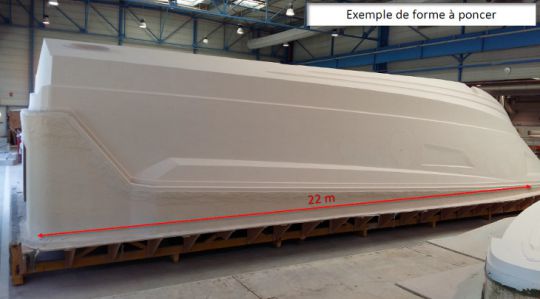
Ideas for new boat manufacturing tools
While it may seem futuristic and complex in relation to the current reality of the nautical industry, the autonomous robot of the Coroma Project could bring about concrete and rapid developments within the Bénéteau Group. " This is a heavy investment and the cost and return on investment of the robot must be validated. We have to make sure we have the technological maturity to go on this and maybe take one. It is necessary to look at the complete process and check if the less operator requires 3 more people in CAD/CAM! "observes Benoit Mériau. " But it gives ideas for making simple tools for operators and running parallel projects faster. "
The manager also says he is working with the University of Nantes on 3D printing of large models. Little by little, modern industrial solutions are finding their way into the nautical world.

